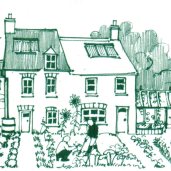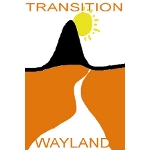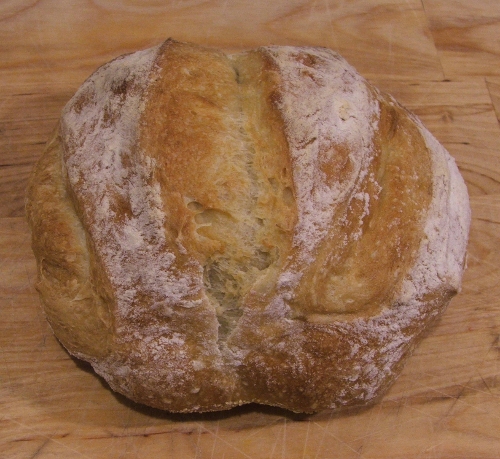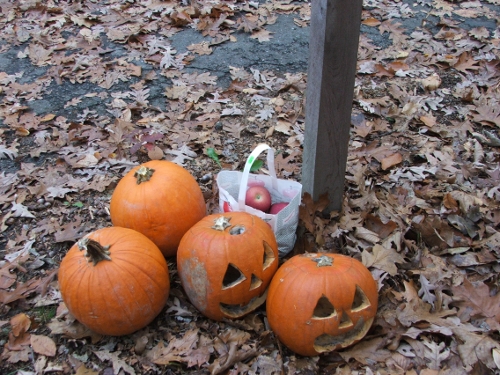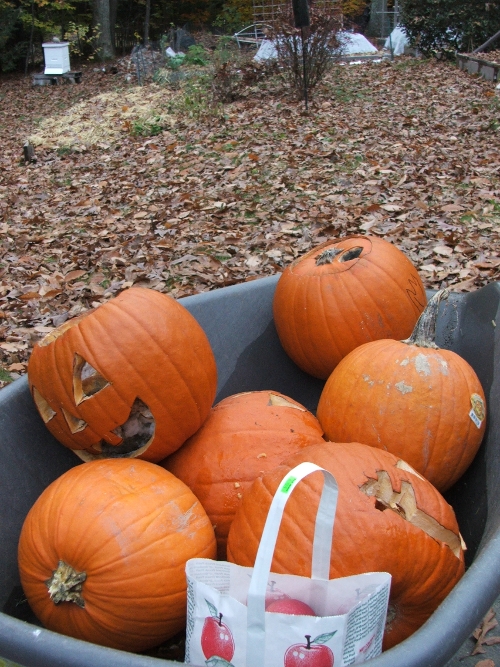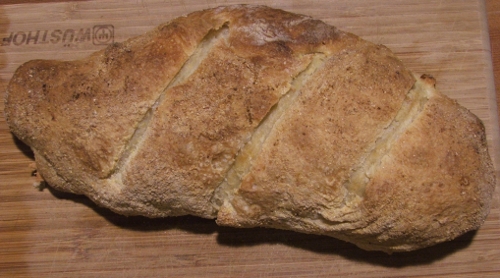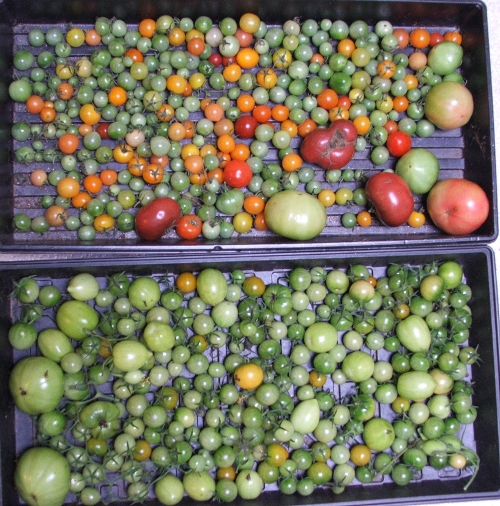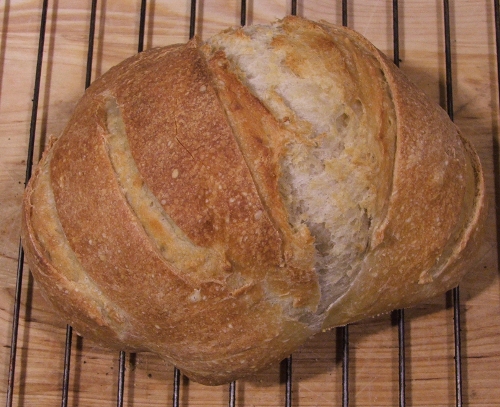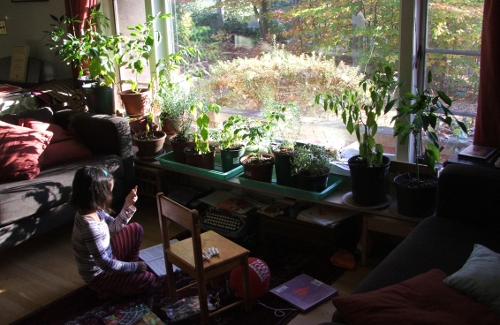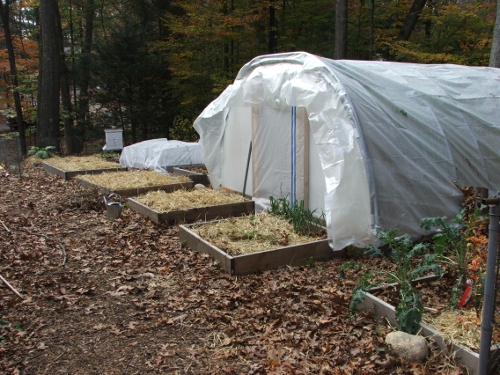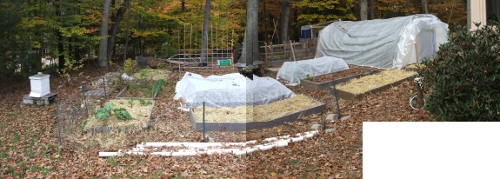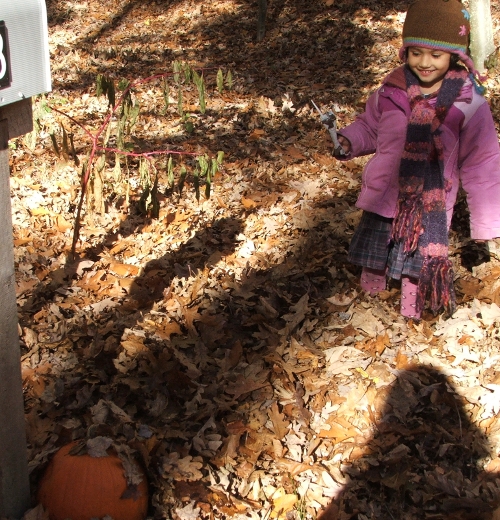A week or so after my “I need to do something!” moment I stumbled across Wendell Berry’s essay “American Imagination and the Civil Way”. It pretty much answered my question, “But What?” The answer was Transition, of course, or more generally speaking, going out there and talking to people.
This one’s philosophical. I hope you don’t mind.
~
I believe “American Imagination and the Civil Way” should be read in the schools. It is insightful, candid, and moving; Berry at his best. It has many aspects that I find fascinating and worth discussing, also in the context of Transition, but here I want to concentrate on that one, the one about talking.
Berry writes that when opponents become enemies, they can no longer imagine one another. Then the only way their relationship can go is the way of generalization, and ultimately of violence.
Now I’m a introverted person. I live in a little house on a little hill where I do all my work – I mother, write and garden. I chat with the moms at Kindergarten and my neighbors and family and friends. Very rarely do I come across any serious disagreements or “personality clashes” or even differences of opinion. I’ve been writing about some pretty difficult issues, yes, but to a generality, an “audience”, who does not confront me.
But with Transition, I’m going to have to go out there, with my neck. This is another aspect of Transition that has always frightened and (so far) paralyzed me, and one that I need to deal with now: How am I going handle opposition?
~
When I face someone in a discussion/argument who doesn’t agree with me, will I regard him as an opponent or as an enemy? Will I dare to really face him, that is, accept and imagine him for who he is, particularly as that unique person with a history and a personality largely unknown to me, in which his opinion is rooted? Or will I retreat and see him only as some X who opposes my view, like all other Xs who oppose it, and will I thus stop imagining him, to see only his opinion and the fact that is is opposed to my own?
Will I be imaginative, or defensive? Will I see one particular person with an opinion, or will I just see one opinion that is against me in the way of all opinions that are against me?
In the first case, it is about us, him and me, and getting to know him, and imagining his reasons for holding his belief, and finding a solution, maybe by changing his mind, or my mind, or finding some common ground (all of which need to be imagined). In the second case, it is all about me. I am the only individual and particular self around, and all the rest is reduced to the general not-me, against me.
~
This is what I see happening around me, especially in the media (which I shun for that reason), the rigid isolation of what Berry calls “the isolated, displaced, desiring, despairing self”. Berry brings home the despair of this person, who has only enemies, by quoting John Haines:
you will always be waiting
for what you do not know,
knowing that when at last
it appears you will not know it.
You will never know it, because you can’t even imagine it.
~
I know it is how many people are, how they will approach me as I go out into that world. And I know I can be like this too, because I am afraid to even look. This brings me to another crucial aspect, which Berry brings up in the essay “God, Science, and Imagination”: “By it [imagination] we may see ourselves as others see us.”
That reflectivity is crucial, of course, because how else would I really imagine the other as he stands facing me and my opinion? But there’s something else: Do I dare face myself? Do I dare imagine myself, this new person who talks with people?
As for myself I am aware that when I find myself in a opposition with a stranger, I admit it, I fear him. Not just him, but myself as well, caught up in that infinite rebound of our reflections of each other.
It is a failure of my imagination all round, ad one that I have to address, with courage. Because when I will go out there, I will be facing two strangers. Him, and me. And when the talking is done, I get to go home with one of these strangers.
What an adventure we will have!
